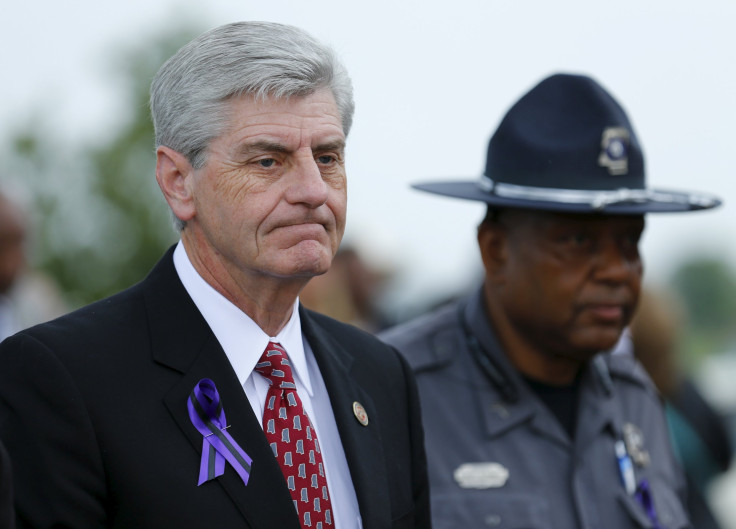US Execs Urge Repeal Of ‘Religious Liberty’ Law In Mississippi

Executives of several major U.S. corporations urged Mississippi on Wednesday to repeal a new state law that allows businesses to deny wedding services to same-sex couples on religious grounds.
The measure, which also permits employers to cite principles of faith in setting workplace policies on dress code, grooming and bathroom access, was signed into law on Tuesday by Republican Gov. Phil Bryant.
Bryant hailed the statute, the latest in a series of state laws opposed by lesbian, gay, bisexual and transgender (LGBT) activists, as designed to "protect sincerely held religious beliefs and moral convictions ... from discriminatory action by state government."
But top executives from General Electric Co, PepsiCo Inc, Dow Chemical Co and five other major U.S. corporations, in an open letter, condemned the law as discriminatory. The letter was addressed to Bryant and the speaker of the Republican-controlled Mississippi House of Representatives.
"The business community, by and large, has consistently communicated to lawmakers at every level that such laws are bad for our employees and bad for business," the executives said.
Those measures, they said, make it more difficult to recruit and retain the best workers, and "diminish the state's draw as a destination for tourism, new businesses and economic cavity."
The call for repeal, circulated by gay rights advocacy group the Human Rights Campaign, was also backed by Levis Strauss & Co, Hewlett Packard Enterprise, Whole Foods Market, Hyatt Hotels Corp and Choice Hotels International Inc.
A similar letter was sent on Wednesday to state leaders in Tennessee opposing legislation there to bar transgender people from choosing bathrooms and locker rooms consistent with their gender identity. North Carolina's own recently imposed bathroom gender restrictions have also prompted corporate objections.
The governors of Georgia and Virginia also vetoed "religious liberty" bills last week.
Even before its enactment, the Mississippi measure drew fire from several large employers in the state, including Nissan North America and MGM Resorts International.
New York Gov. Andrew Cuomo responded to its enactment by banning all non-essential state travel to Mississippi, and civil liberties advocates said they were considering a court challenge.
Still, nearly two-thirds of Mississippi voters supported the law, according to a poll highlighted on Tuesday by the Christian-based Family Research Council.
The wave of such measures, pushed by social conservatives, came after a U.S. Supreme Court ruling last year that legalized same-sex marriage nationwide.
© Copyright Thomson Reuters 2024. All rights reserved.







